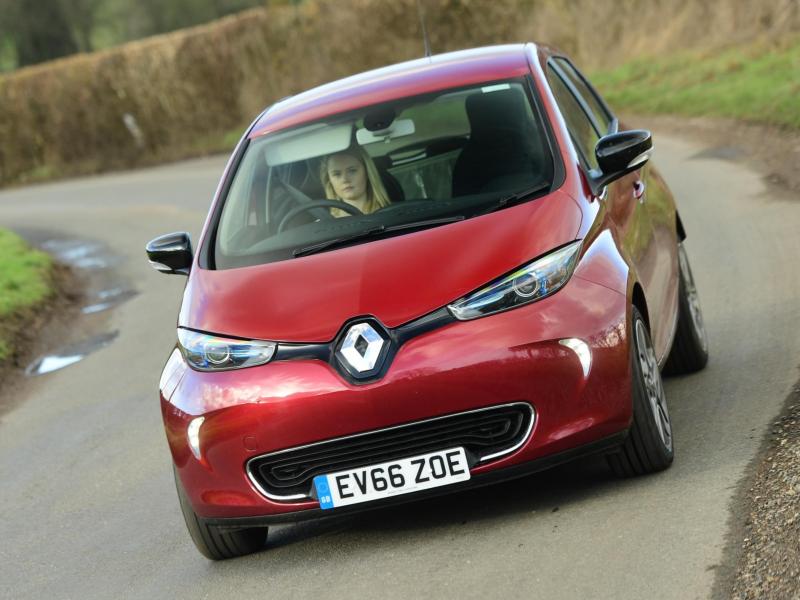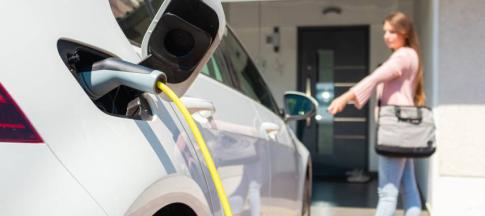
EVs are now more common than ever. The Energy and Climate Intelligence Unit found that popular petrol cars cost drivers around £700 a year more than EVs.
On the other hand, they also found that top-selling EVs, like the Tesla Model Y, can save drivers around £1,300 a year.
But are there any risks you should look out for when buying a second-hand EV? Let's look at the advantages and disadvantages of buying a used electric car.
Buying a second-hand EV
On a basic level, buying a second-hand EV is the same as purchasing a petrol or diesel-powered car – you still need to check the documentation and the car's history, etc. But when it comes to the viewing and the test drive, there's a lot less to go on.
Sure, you can check the general condition of the car, plus the handling and brakes during the test drive, but without an oil dipstick, for instance, you’ll want to check to see if the car has a comprehensive service history and how many miles it has done too.
The good news is that EVs have fewer components than cars with combustion engines, so there’s less to go wrong.
If you’re thinking about buying a second-hand EV, we’ve done some of the research for you to help with your decision.
Take a look at the list of the pros and cons of buying a used EV compared to buying a used petrol or diesel car.
Advantages of buying a used EV
Save money
The cost to power an EV depends on the tariff used, which is often determined by your location and electricity provider.
Test how much switching to an EV could save you on your commute with our car journey calculator. You can also use our interactive map to find the average price and availability of second-hand EVs near you.
It's not just fuel you'll save money on either. Switching to an EV can help you save on congestion charges.
It's important to note that EVs are no longer road tax-exempt as of 1 April 2025. Check out our EV and hybrid tax guide to find out what you need to pay.
Greener
Pure electric vehicles have zero tailpipe emissions, making them more eco-friendly when running than any petrol, electric or hybrid car. Less pollution means cleaner air and a healthier planet.
Purchase price
While used EVs are often more expensive than used petrol or diesel cars, they are, at least, cheaper than new EVs, and sometimes cheaper.
Reliability
Electric vehicles are cheaper to maintain than petrol and diesel cars because they have fewer moving parts and there’s reduced wear and tear. According to Book My Garage, the average servicing cost for a petrol car in the UK is £151, and the average cost for a diesel car is £163.
On the other hand, the average cost of an EV service is £103. This is a significant saving, but it often only applies to pure electric cars. Book My Garage also found that, like diesel cars, the average servicing cost for a hybrid is £163.
Warranty
Some battery packs on new cars have a warranty of eight years (e.g. BMW, Tesla and Nissan). This means you’ll still be able to benefit from the warranty with a second-hand electric car.
Broadly speaking, if the battery's capacity drops below a certain percentage within its warranty window, it’ll be repaired or replaced.
Comfort
With no engine noise, EVs can offer a comfortable, relaxing driving experience.
Simplicity
There's no traditional manual gearbox in an EV, so it's simply a case of accelerating and braking, just like a conventional automatic car, but easier.
Performance
Thanks to the instant torque delivery of an electric motor, which is needed to accelerate the vehicle, EVs are surprisingly quick to pull away from the lights, for instance, which means they can perform better than some expensive performance cars.
Disadvantages of buying a used EV
Range anxiety
EVs have been known to have a shorter range than petrol and diesel cars. However, as time passes, the range offered by new EVs is slowly increasing.
However, we’re not talking about new EVs here. Used EVs can have the combined issue of a shorter range than petrol and diesel vehicles. One of the reasons is due to battery degradation over time.
Cardiff University automotive expert, Professor Wells, said: “The main unknown for second-hand EV buyers is the battery’s condition and how much capacity is left.
However, long manufacturer warranties on battery packs help reduce some of this risk. Plus, as a battery pack has a high value, the end-of-life price of a second-hand EV is higher than a traditional petrol or diesel car.”
Thankfully, the number of public chargers is increasing in the UK. Use our electric car charger map to find your nearest service, wherever you may be in the UK.
Battery lease
Check the battery pack is included if you’re buying a second-hand electric vehicle. Batteries on some older EVs (e.g. Renault Zoe) were leased in a bid to reduce the car’s initial purchase price, so you'll need to factor in a cost of at least £49 per month if your used EV has a leased battery (according to John Clark).
Purchase price
Depreciation affects any vehicle, as all cars lose value over time, be it due to wear and tear, newer technology elsewhere, or otherwise.
However, electric cars (with their relatively high prices when new) have historically lost value at a higher rate. The cost of a brand-new EV is often a barrier that prevents motorists from making the switch from fuel to an electric car.
As newer, competitively priced EVs go on sale and buyers see older electric cars on the roads, perceptions may change.
Charging time
Whether you buy new or used, you’ll need to factor in time to stop and recharge on longer journeys.
Driving experience
Whether you're buying new or used, many who prefer petrol cars argue that electric vehicles deliver a dull driving experience, devoid of engine noise, the thrill of changing gears and exciting handling characteristics.
This is a controversial argument, and manufacturers are improving driving dynamics for their latest EVs. Test drive one for yourself - there are many converts out there!
Maintenance
If something goes wrong with your EV, you may have no choice but to go to a main dealer, That’s because many independent garages don’t specialise in electric vehicles.
Charging points
Buyers of used electric cars suffer from the same infrastructure limitations as new EV buyers. The network of public chargers is growing, but if we all switched to electric this year, there wouldn't be anywhere near enough. Also, drivers living in flats or houses with no driveway are very limited.
Warranty
Most new electric cars come with a generous battery warranty of around eight years. So far, there's no evidence that battery packs on older EVs degrade massively, although we know they lose some range with age.
I'm an experienced journalist, digital editor and copywriter, now specialising in motoring. I’m editor of Automotive Blog and have worked across the media in newspapers, magazines, TV, teletext, radio and online for household names including the BBC, GMTV, ITV and MSN. I’ve produced digital content in the financial sector for Lloyds Bank, Nationwide and the Money Advice Service. I'm married with two children and live near Bath in Somerset.



